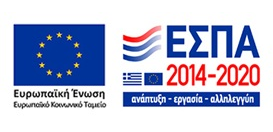George Apostolopoulos received his BSc (1991) and PhD (1997) degrees from the Physics Department of the National University of Athens, Greece. He has worked at the Paul-Drude Institut, Berlin (1997-2000) and the Institute of Materials Science of NCSR “Demokritos” (2000-2003). During this period his work has been mainly devoted to the growth and characterization of semiconductor materials and devices. In 2004 he joined the Institute of Nuclear Technology and Radiation Protection of NCSR “Demokritos” as a research associate, working on the development and application of neutron and X-ray scattering techniques in the characterization of materials. Since 2008 he is a researcher of the Institute. His current research focuses on the properties of materials for future fusion energy systems and particularly on the effects of radiation damage and recovery.

Tungsten (W) plays a key role in fusion research as it is considered the most suitable material for plasma facing components. One of the difficulties in the utilization of W is its inherent brittleness which is further exacerbated at high temperature due to the inevitable recrystallization. This pro...


The timely availability of qualified materials for use in fusion power reactors is a necessity for the fast deployment of fusion power. 27 European institutions have joined together in the FEMaS-CA to advance fusion materials science in Europe and in close cooperation with EFDA, the European Fusion ...

Scientific Coordination of the tasks:
